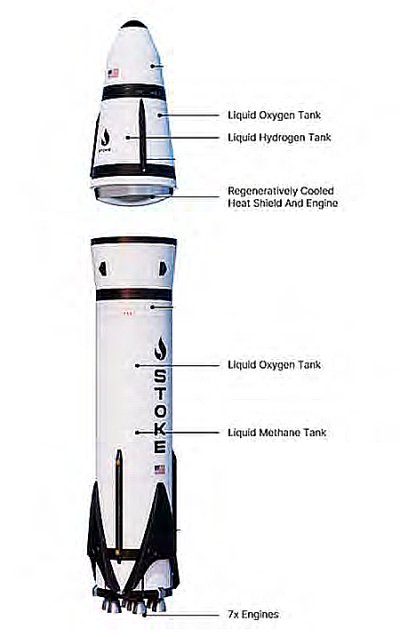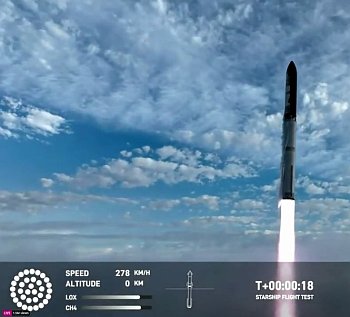Rocket startup Stoke Space is saddled with the same red tape as SpaceX

Stoke’s Nova rocket
We’re from the government and we’re here to help you! The rocket startup Stoke Space appears to be struggling with the same kind of environmental red tape that is hindering SpaceX, though in Stoke’s case the red tape appears absurdly unnecessary.
Stoke is the only company besides SpaceX developing a rocket with both its first and second stages returning to Earth to land vertically and then be reused. Unlike SpaceX Starship/Superheavy, which is gigantic and revolutionary in all ways, Stoke’s Nova rocket is comparable in size to the hundreds of rockets that have launched from Florida since the 1960s. Based on that six-decade track record, it would seem that getting rights to launch Nova (but not for its return) would be considered basic and routine, requiring little complex bureaucracy.
Hah! Fooled you!
Before any of this can take place, the Space Force must complete its “environmental assessment” of the company’s plans at LC-14 [the launchpad used for John Glenn’s first orbital mission and many others subsequently], in order to evaluate how repeat launches will affect local flora and fauna. These assessments are mandatory under federal law, and they can often take months — but the upside is that they provide a closer look at a company’s operational plans.

Stoke’s Nova rocket
We’re from the government and we’re here to help you! The rocket startup Stoke Space appears to be struggling with the same kind of environmental red tape that is hindering SpaceX, though in Stoke’s case the red tape appears absurdly unnecessary.
Stoke is the only company besides SpaceX developing a rocket with both its first and second stages returning to Earth to land vertically and then be reused. Unlike SpaceX Starship/Superheavy, which is gigantic and revolutionary in all ways, Stoke’s Nova rocket is comparable in size to the hundreds of rockets that have launched from Florida since the 1960s. Based on that six-decade track record, it would seem that getting rights to launch Nova (but not for its return) would be considered basic and routine, requiring little complex bureaucracy.
Hah! Fooled you!
Before any of this can take place, the Space Force must complete its “environmental assessment” of the company’s plans at LC-14 [the launchpad used for John Glenn’s first orbital mission and many others subsequently], in order to evaluate how repeat launches will affect local flora and fauna. These assessments are mandatory under federal law, and they can often take months — but the upside is that they provide a closer look at a company’s operational plans.

